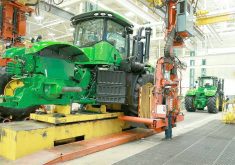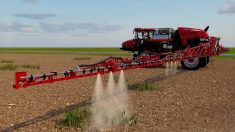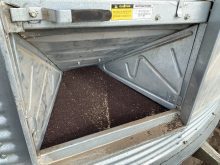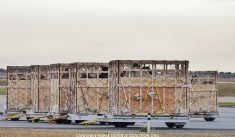The announcement came and went without much fanfare, but then there wasn’t a lot to announce except more of the same. I refer to the recent statement that Minister of Agriculture Jack Hayden will be creating the “Farm Safety Advisory Council” to deal with the ongoing crisis in agriculture-related injuries and deaths. It seemed to be done somewhat begrudgingly as the result of a comment made by a judge on a farm worker legal case. The judge could not understand why agriculture was the only industry not covered by mandatory occupational health and safety (OHS) regulations.
Read Also

Farm equipment sales sector sees significant structural changes
Farming equipment sales have been declining for a number of years now, and one industry professional believes structural changes in the industry are needed to curb that trend.
Rather than take an objective third-party look at the situation, the agriculture and employment ministers instead set up a somewhat predetermined process by hiring a consultant to confirm their already established views. As predicted in a previous editorial, the consultant came back and basically told the ministers what they wanted to hear. For his report, the consultant conferred with 24 stakeholders, only two of which involved actual farm workers. The rest were connected to employers, the majority of whom already had known positions on the issue.
If such a process had been used to report on the need for OHS in the construction industry, or any other industry for that matter, it would have been laughed out the door as being hopelessly biased.
One can sympathize with the ag industry attitude that they don’t need more costs and regulations in a low-margin business, but then that would be the opinion of most sectors of the economy. The other argument is that agriculture is unique in that it mixes home, family and workplace. That’s more true of the past than it is of today’s reality. Once agricultural operations start to have more than a couple of employees, they have gone beyond the quaint rural ideal of “Old MacDonald’s” family farm. Besides this is 2011 not 1911, citizens and society in general now have very different expectations of human rights and equality in the workplace. Those realities are recognized by every other province except Alberta.
Carnage continues
A study of safety-related fatalities showed that over a 15-year period, the Alberta average share of agriculture-related deaths was 389 of which 62 were children. And the carnage continues, a story in this edition reports on the death of two farm workers who were electrocuted while moving an auger.
To cover such incidents the bigger agricultural operations already buy liability insurance to protect themselves from lawsuits. That gets some of them off the hook, but that doesn’t do injured farm workers and survivors much good as they have to battle it out in court with intransigent insurance companies. A worse situation is where the farm/ranch owner is killed or severely injured, which sometimes results in the operation having to shut down or be sold. This is a real hole in the system and as important as farm workers’ rights.
The better approach would be for the Alberta government to implement mandatory OHS/WCB regulations for agriculture on a phased-in approach, beginning with operations that have five full-time employees or more. The rest, including farm/ranch owners, could be phased in over time with incentives if necessary. For instance, the government could make agriculture subsidies subject to OHS/WCB compliance. If that link were mad, we would be surprised to see how affordable and quick such compliance would suddenly become for many operators.
I also expect that depending on the direction of lawsuits, bankers and lenders will begin to insist on some sort of OHS/WCB coverage at the least. That approach may well be in the works, as the minister has hinted that he hopes the new council will be providing him with some advice as to the future of OHS in the agriculture industry.
Having said all that, there is another another perspective to ponder. It’s interesting to note that when there is evidence of animal abuse, neglect or unusual deaths on a farm or ranch, there are animal welfare regulations in place for investigation, legal action and fines to address the situation. Yet farm workers in Alberta have no such recourse when they are injured or killed. It would seem they are more expendable than livestock.
What’s really curious is when city folks and lobby groups become outraged when a few hundred ducks accidently die from an oilsands accident. They demand immediate action and enforcement, along with more regulations and compensation. In response, governments rush to investigate, appease and rectify the situation. Yet in agriculture where people and children continue to die or get injured, all they get is government indifference and delay. One does get the impression that dead ducks are more important than dead people.
———
Onceagriculturaloperations starttohavemorethanacouple ofemployees,theyhavegone beyondthequaintruralidealof “OldMacDonald’s”familyfarm.














